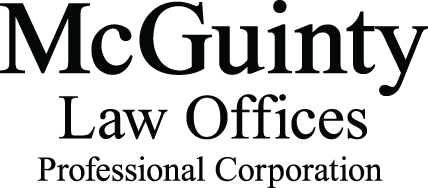13 Jul Probate Tax 101: What Part Of My Estate Is Subject To Probate Tax?
When a person passes away in the Province of Ontario, the Estate Administration Tax, also known as probate tax, is charged to his or her estate. The estate executors, also called estate trustees, are responsible for paying the probate tax out of the funds of the estate.
Probate tax is charged on the total value of a deceased person’s estate.
Assets that the deceased had before death but not at the time of death, such as insurance payable to a named beneficiary, assets where there is joint ownership with right of survivorship and real estate outside of Ontario are not included in the value of the estate. You should speak with your lawyer about designating beneficiaries and joint ownership in order to save probate tax.
The total value of the estate is the value of all assets owned by the deceased at the time of death, including:
- real estate in Ontario (less encumbrances)
- bank accounts
- investments (e.g., stocks, bonds, trust units, options)
- vehicles and vessels (e.g., cars, trucks, boats, ATVs, motorcycles)
- all property of the deceased which was held in another person’s name
- all other property, wherever situated, including:
- goods
- intangible property
- business interests, and
- insurance, if proceeds pass through the estate, e.g., no named beneficiary other than ‘Estate’.
You may get Primary and Secondary Wills to limit probate tax. A Primary Will covers all assets on which probate is required. Probate is the Certificate appointing the executor of your estate, and is issued by the court. For example, the bank generally requires probate be issued before releasing the funds of a deceased person to the executors. A Secondary Will covers assets for which no institution requires probate. These include art collections, jewelry, or shares in a private company not listed on a stock exchange. If you have a Secondary Will, your estate does not need to pay probate tax on the value of the private assets covered by the Secondary Will. In the event you have a Secondary Will, the court issues a Certificate of Appointment of Estate Trustee with a Will Limited to the Assets Referred to in the Will, and only the assets mentioned in such will are subject to probate tax. A Secondary Will could save your estate thousands of dollars in probate tax, leaving more for your beneficiaries.
If the court issues:
- a Confirmation by Resealing of Appointment of Estate Trustee
- a Certificate of Ancillary Appointment of an Estate Trustee with a Will, or
- a Certificate of Appointment of Foreign Estate Trustee’s Nominee as Estate Trustee without a Will,
then only the assets located in Ontario are subject to probate tax.
Encumbrances against any assets other than real estate cannot be deducted from the value of the assets.
If you wish to lower your probate tax burden, you can take advantage of our Tax Saving Wills™. We invite you to give us a call for a confidential consultation.
DISCLAIMER: The contents of this article are information only and should not be construed as legal advice. Please contact us if you would like legal advice. We strongly recommend that you consult a lawyer before taking any actions that are referred to in this article.



